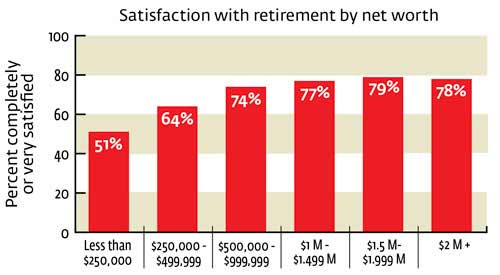easysurfer
Give me a museum and I'll fill it. (Picasso) Give me a forum ...
- Joined
- Jun 11, 2008
- Messages
- 13,151
According to this, $1 million (and an old fashion pension) is still the sweet spot for satisfaction and retirement.
retirement-steps-that-work: Personal Finance News from Yahoo! Finance
retirement-steps-that-work: Personal Finance News from Yahoo! Finance



